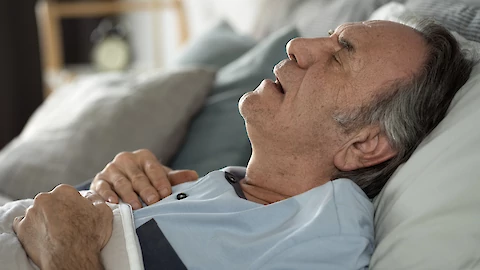
Sleep Apnea is a common condition among seniors, yet often under-recognized and undertreated. It's more than just restless nights and excessive daytime sleepiness. This disorder can have serious implications for your senior loved one's overall health if left unaddressed. As a caregiver, understanding what sleep apnea looks like in seniors and how to effectively manage it is crucial. After all, ensuring that seniors get a good night's sleep is an important part of their well-being. You need to learn more about its symptoms, effects as we age, and the various treatment options.
Understanding Sleep Apnea in Seniors
Sleep apnea is a condition characterized by temporary interruptions in breathing during sleep. Such disruptions can occur hundreds of times each night, significantly affecting sleep quality. For our seniors, these disruptions can be even more detrimental due to age-related changes in sleep patterns and physical health. Seniors are also more likely to struggle with sleep apnea.
Symptoms and Importance
Common symptoms of sleep apnea include loud snoring, restless sleep, waking up frequently at night, gasping for air, and excessive daytime sleepiness. Some seniors may also experience mood changes, difficulties with memory and concentration, or morning headaches. You need to recognize these signs early and seek medical advice because untreated sleep apnea can lead to serious health problems like high blood pressure, heart disease, stroke, and cognitive decline.
The increasing age factor adds another layer of complexity. As seniors reach their twilight years, their muscle tone and lung function may diminish, which could potentially worsen sleep apnea symptoms. This makes addressing and treating sleep apnea even more critical.
Treatment Options
The good news is that there are several treatments available to help manage sleep apnea in seniors. While severe cases may require medical procedures such as Continuous Positive Airway Pressure (CPAP), most seniors benefit from lifestyle changes. These modifications might include maintaining a healthy weight, quitting smoking, reducing alcohol intake, and sleeping on one's side.
Moreover, a variety of oral appliances designed to keep the airway open during sleep have proven effective in managing mild to moderate sleep apnea. However, you should take your senior loved one to consult with a healthcare provider to determine the most appropriate treatment plan.
Practical Tips
For a more comfortable and restful sleep, consider adjusting bedtime routines and home environment. Establishing regular sleep schedules, avoiding heavy meals close to bedtime, and creating a dark, cool, and quiet sleep environment can significantly improve a senior's sleep quality. Investing in adaptive bed equipment, like adjustable beds or specialized pillows, may also help alleviate symptoms.
Senior Helpers Greater Cincinnati Helps Seniors Look After Their Overall Health and Well-Being
You should never overlook sleep apnea, especially in your senior loved one. It's more than just a sleep disorder; it's a health issue that requires attention and proper management.
If you are in Hamilton, Fairfield, Middletown, Cincinnati, or Milford and need assistance in providing care for a senior loved one with sleep apnea, consider reaching out to us at Senior Helpers Greater Cincinnati. Our team is dedicated to ensuring the comfort, health, and happiness of your senior loved ones.